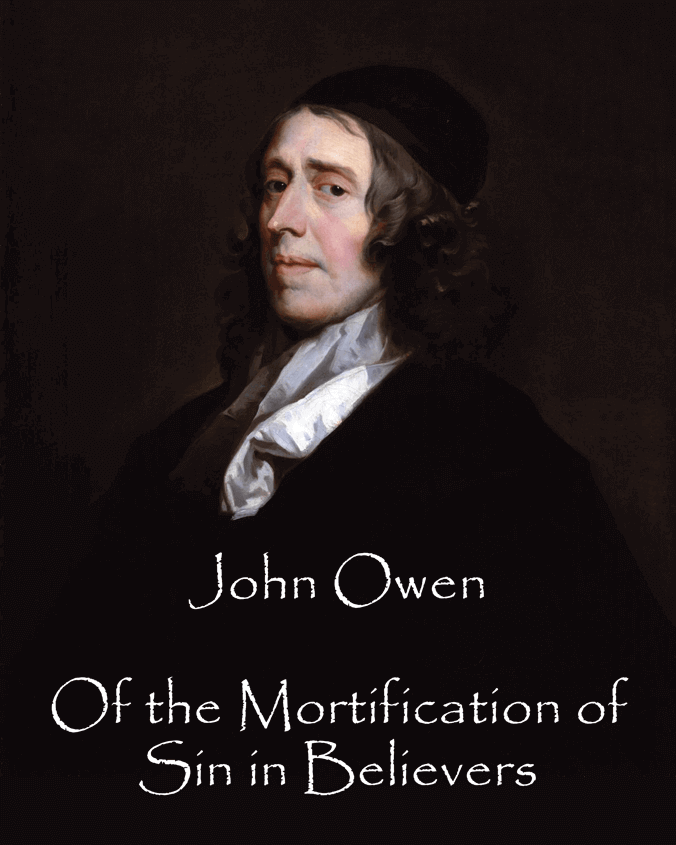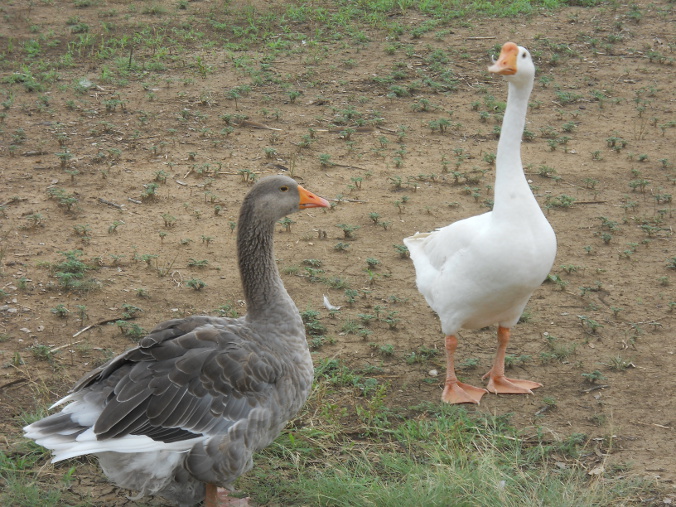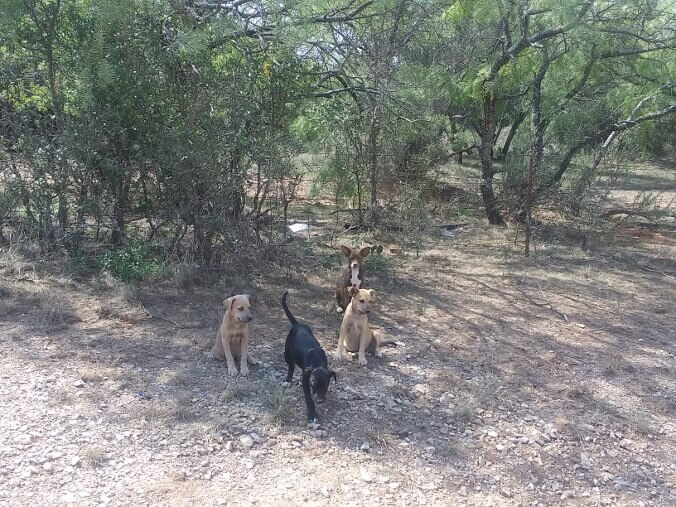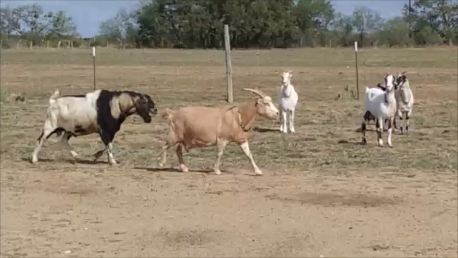The Lord has graciously granted us His word, the Bible, and He has also, I believe, graciously granted other means of grace for us to use. I have personally found the Puritans to be very beneficial, and some time ago I thought I might try to make some of their writings available in an audio format, so those who might prefer that and otherwise might not get to “hear” (by reading) what these men of faith had to say. They’re all available for free on this page. You can listen or download each individual reading for each work, or the whole set of .mp3 files in .zip files available on those pages.
I recently finished a new one — a shorter one, especially considering whose it is — from John Owen, called “Of the Mortification of Sin in Believers“. I believe this is an important topic that all who take the name of Christ upon themselves should understand and be working on.
Romans 8:13 - "For if ye live after the flesh, ye shall die: but if ye through the Spirit do mortify the deeds of the body, ye shall live."
That’s pretty sobering about the importance of this work.
And here is more from Dr. Owen:
I. That the choicest believers, who are assuredly freed from the condemning power of sin, ought yet to make it their business all their days to mortify the indwelling power of sin.
The apostle tells you what was his practice, 1 Cor. 9:27, “I keep under my body, and bring it into subjection.” “I do it,” saith he, “daily; it is the work of my life: I omit it not; this is my business.” And if this were the work and business of Paul, who was so incomparably exalted in grace, revelations, enjoyments, privileges, consolations, above the ordinary measure of believers, where may we possibly bottom an exemption from this work and duty whilst we are in this world? Some brief account of the reasons hereof may be given:
1. Indwelling sin always abides whilst we are in this world; therefore it is always to be mortified.
2. Sin doth not only still abide in us, but is still acting, still labouring to bring forth the deeds of the flesh.
3. Sin will not only be striving, acting, rebelling, troubling, disquieting, but if let alone, if not continually mortified, it will bring forth great, cursed, scandalous, soul-destroying sins.
…
Men may come to that, that sin may not be heard speaking a scandalous word in their hearts, — that is, provoking to any great sin with scandal in its mouth; but yet every rise of lust [which generally is any corrupt desire of the heart], might it have its course, would come to the height of villainy: it is like the grave, that is never satisfied. And herein lies no small share of the deceitfulness of sin, by which it prevails to the hardening of men, and so to their ruin, Heb. 3:13, — it is modest, as it were, in its first motions and proposals, but having once got footing in the heart by them, it constantly makes good its ground, and presses on to some farther degrees in the same kind.
…
Now nothing can prevent this but mortification; that withers the root and strikes at the head of sin every hour, so that whatever it aims at it is crossed in.
4. This is one main reason why the Spirit and the new nature is given unto us, — that we may have a principle within whereby to oppose sin and lust [again, generally any corrupt desire of the heart].
…
The contest is for our lives and souls. Not to be daily employing the Spirit and new nature for the mortifying of sin, is to neglect that excellent succour which God hath given us against our greatest enemy. If we neglect to make use of what we have received, God may justly hold his hand from giving us more. His graces, as well as his gifts, are bestowed on us to use, exercise, and trade with. Not to be daily mortifying sin, is to sin against the goodness, kindness, wisdom, grace, and love of God, who hath furnished us with a principle of doing it.
5. Negligence in this duty casts the soul into a perfect contrary condition to that which the apostle affirms was his, 2 Cor. 4:16, “Though our outward man perish, yet the inward man is renewed day by day.”
…
This is that which I intend: by the omission of this duty grace withers, lust [corrupt desire] flourishes, and the frame of the heart grows worse and worse; and the Lord knows what desperate and fearful issues it hath had with many.
…
Indeed, it is a sad thing to consider the fearful issues of this neglect, which lie under our eyes every day. See we not those, whom we knew humble, melting, broken-hearted Christians, tender and fearful to offend, zealous for God and all his ways, his Sabbaths and ordinances, grown, through neglect of watching unto this duty, earthly, carnal, cold, wrathful, complying with the men of the world and things of the world, to the scandal of religion and the fearful temptation of them that know them? The truth is, what between placing mortification in a rigid, stubborn frame of spirit, which is for the most part earthly, legal, censorious, partial, consistent with wrath, envy, malice, pride, on the one hand, and pretences of liberty, grace, and I know not what, on the other, true evangelical mortification is almost lost amongst us.
It is our duty to be “perfecting holiness in the fear of God,” 2 Cor. 7:1; to be “growing in grace” every day, 1 Pet. 2:3, 2 Pet 3:18; to be “renewing our inward man day by day,” 2 Cor. 4:16. Now, this cannot be done without the daily mortifying of sin.
This, then, is the first general principle of our ensuing discourse: Notwithstanding the meritorious mortification, if I may so speak, of all and every sin the cross of Christ; notwithstanding the real foundation of universal mortification laid in our first conversion, by conviction of sin, humiliation for sin, and the implantation of a new principle opposite to it and destructive of it; — yet sin doth so remain, so act and work in the best of believers, whilst they live in this world, that the constant daily mortification of it is all their days incumbent on them.
Before I proceed to the consideration of the next principle, I cannot but by the way complain of many professors [of Christianity] of these days, who, instead of bringing forth such great and evident fruits of mortification as are expected, scarce bear any leaves of it. There is, indeed, a broad light fallen upon the men of this generation, and together therewith many spiritual gifts communicated, which, with some other considerations, have wonderfully enlarged the bounds of professors and profession; both they and it are exceedingly multiplied and increased. Hence there is a noise of religion and religious duties in every corner, preaching in abundance, — and that not in an empty, light, trivial, and vain manner, as formerly, but to a good proportion of a spiritual gift, — so that if you will measure the number of believers by light, gifts, and profession, the church may have cause to say, “Who hath born me all these?” [Ie. There are lots of knowledgeable and religious people today.]
But now if you will take the measure of them by this great discriminating grace of Christians, perhaps you will find their number not so multiplied. Where almost is that professor who owes his conversion to these days of light, and so talks and professes at such a rate of spirituality as few in former days were, in any measure, acquainted with (I will not judge them, but perhaps boasting what the Lord hath done in them), that does not give evidence of a miserably unmortified heart? If vain spending of time, idleness, unprofitableness in men’s places, envy, strife, variance, emulations, wrath, pride, worldliness, selfishness, 1 Cor. 1, be badges of Christians, we have them on us and amongst us in abundance.
And if it be so with them who have much light, and which, we hope, is saving, what shall we say of some who would be accounted religious and yet despise the gospel light, and for the duty we have in hand, know no more of it but what consists in men’s denying themselves sometimes in outward enjoyments, which is one of the outmost branches of it, which they will seldom practice? The good Lord send out a spirit of mortification to cure our distempers, or we are in a sad condition!
There are two evils which certainly attend every unmortified professor; — the first, in himself; the other, in respect of others:–
1. In himself. Let him pretend what he will, he hath slight thoughts of sin; at least, of sins of daily infirmity. The root of an unmortified course is the digestion of sin without bitterness in the heart. When a man hath confirmed his imagination to such an apprehension of grace and mercy as to be able, without bitterness, to swallow and digest daily sins, that man is at the very brink of turning the grace of God into lasciviousness, and being hardened by the deceitfulness of sin. Neither is there a greater evidence of a false and rotten heart in the world than to drive such a trade.
To use the blood of Christ, which is given to cleanse us, 1 John 1:7, Tit. 2:14; the exaltation of Christ, which is to give us repentance, Acts 5:31; the doctrine of grace, which teaches us to deny all ungodliness, Tit 2:11,12 to countenance sin, is a rebellion that in the issue will break the bones.
At this door have gone out from us most of the professors that have apostatized in the days wherein we live. For a while they were most of them under convictions; these kept them unto duties, and brought them to profession; so they “escaped the pollutions that are in the world, through the knowledge of our Lord Jesus Christ,” 2 Pet. 2:20: but having got an acquaintance with the doctrine of the gospel, and being weary of duty, for which they had no principle, they began to countenance themselves in manifold neglects from the doctrine of grace. Now, when once this evil had laid hold of them, they speedily tumbled into perdition.
2. To others. It hath an evil influence on them on a twofold account:–
(1.) It hardens them, by begetting in them a persuasion that they are in as good condition as the best professors. Whatever they see in them is so stained for want [lack] of this mortification that it is of no value with them. They have a zeal for religion; but it is accompanied with want [lack] of forbearance and universal righteousness. They deny prodigality, but with worldliness; they separate from the world, but live wholly to themselves, taking no care to exercise loving-kindness in the earth; or they talk spiritually, and live vainly; mention communion with God, and are every way conformed to the world; boasting of forgiveness of sin, and never forgiving others. And with such considerations do poor creatures harden their hearts in their unregeneracy.
(2.) They deceive them, in making them believe that if they can come up to their condition it shall be well with them; and so it grows an easy thing to have the great temptation of repute in religion to wrestle withal, when they may go far beyond them as to what appears in them, and yet come short of eternal life.
May God grant us a desire to come against our own sin, with the help and power of the Holy Spirit, so we may be more obedient because we hate sin as it is an affront to the One we love!
— David
(For those interested, you can also read it online here.)















